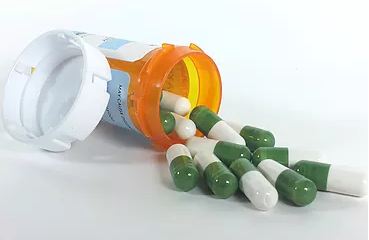Allergic Illness - Conventional Treatments
In this section, we will review the various conventional options for allergy treatment in Vaughan. While effective at controlling the symptoms of allergic illness, very few of these treatments work on correcting the underlying causes of allergy in an individual. In addition, many of these therapeutic carry side effects (especially with prolong or extended periods of use). Check out the section on treatments at the Marsden Centre to learn about other therapeutic options which not only help reduce symptoms of allergic illness, but work to resolve some of the underlying causes of disease.

Avoiding Your Allergens
The best way to prevent allergy symptoms and minimize your need for allergy medicine is to avoid your allergens as much as possible and to eliminate the source of allergens from your home and other environments. This includes foods, and minimizing exposure to some inhalants (such as cat dander). Other strategies on avoiding allergens to reduce allergic symptoms can be found below.
Medication
Some people are able to manage without medication. Some may require medications to relieve allergy symptoms.
Antihistamines and decongestants
are the most common medicines used for allergies. Antihistamines help relieve rashes and hives, as well as sneezing, itching, and runny nose. Prescription antihistamines are similar to their non-prescription counterparts, but many of them do not cause drowsiness. Decongestant pills, sprays, and nose drops reduce stuffiness by shrinking swollen membranes in the nose.
Eye drops
may provide temporary relief from burning or bloodshot eyes. However, only prescription allergy eye drops contain antihistamines that can reduce itching, tearing and swelling.
Corticosteroid creams or ointments
relieve itchiness of rashes. If your rash does not go away after using a non-prescription corticosteroid, you should see your doctor.
Corticosteroid nasal sprays
help reduce the inflammation that causes nasal congestion without the chance of the “rebound” effect found in non-prescription nasal sprays.
Cromolyn Sodium
prevents the inflammation, which causes nasal congestion. Because it has few side effects, cromolyn can be safely used over long periods of time.
Oral Corticosteroids
may be prescribed to reduce swelling and stop severe allergic reactions. Because these medications can cause serious side effects, you should expect your doctor to carefully monitor you.
Epinephrine
comes in pre-measured, self-injectable containers, and is the only medication, which can help during a life-threatening anaphylactic attack. To be effective, epinephrine must be given within minutes of the first sign of serious allergic reaction.
Immunotherapy (Allergy Shots)
When it is not possible to avoid your allergens and treatment with medications alone does not solve the problem, immunotherapy can often prevent and treat allergy symptoms. It involves giving a person increasingly higher doses of their allergen over time. For reasons that are not completely understood, the person gradually becomes less sensitive to that allergen. This can be effective for some people with hay fever, certain animal allergies, and insect stings. It is usually not effective for allergies to food, drugs, or feathers, nor is it effective for hives or eczema.
You may click on the button below to go back and check out other sections for more information on treatment of allergic illness at the Marsden Centre.